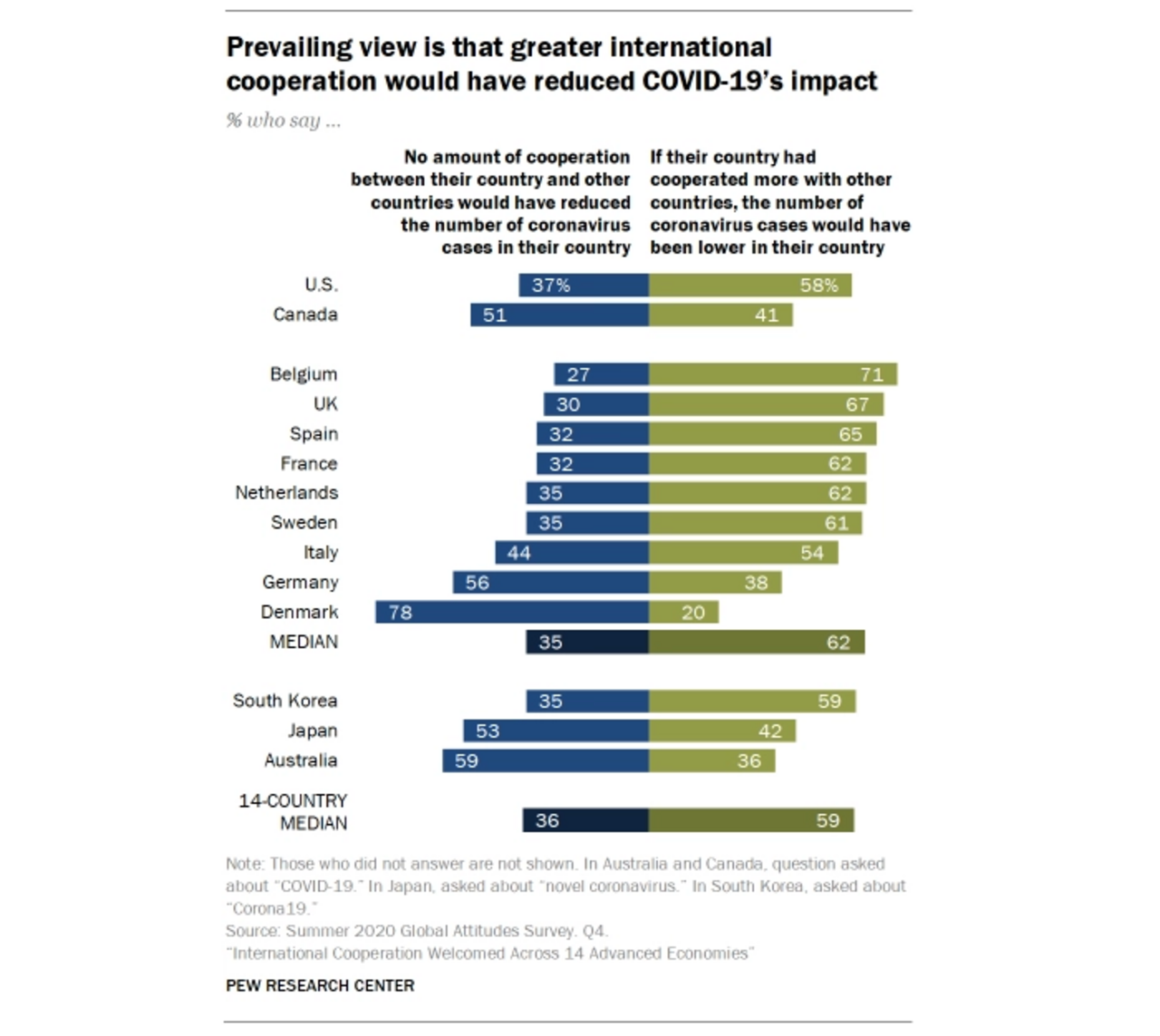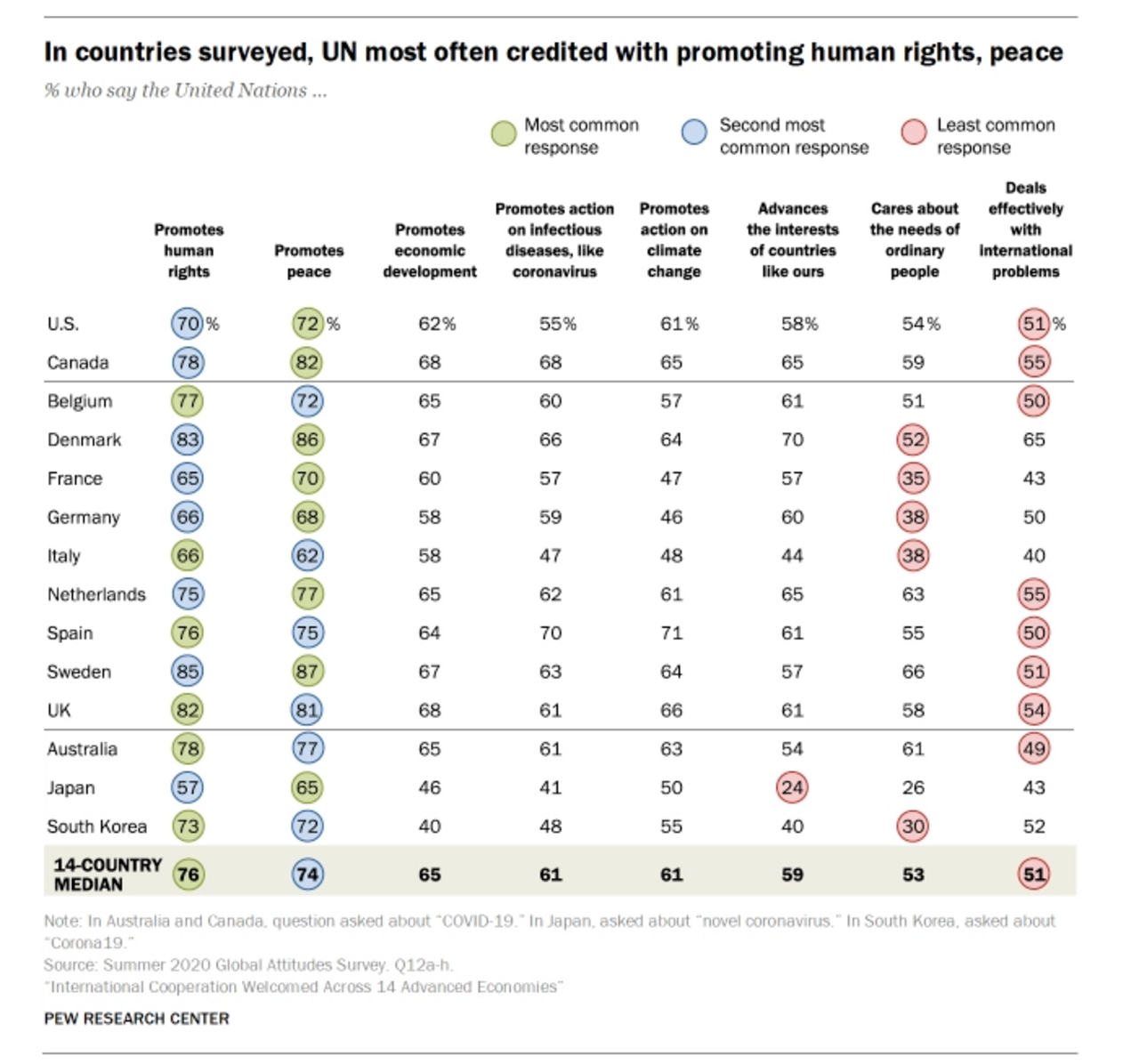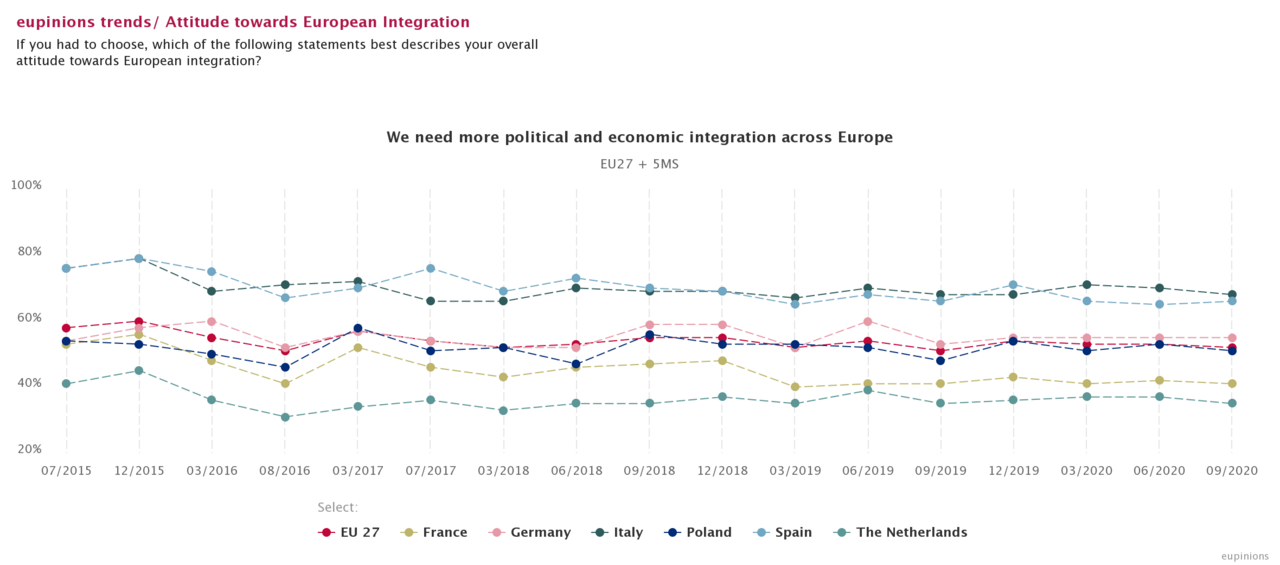Every week, surveys from all across the EU tell us what Europeans are thinking, feeling and talking about. In our segment, eupinions echo, we collect these voices and play them back to you. Each week, we highlight one survey of particular interest in a short blogpost and share daily new survey results via our website and our twitter channel.
The past half decade has been shaped politically in large parts by the sudden surge of populist-right movements in many countries across the West. While this political phenomenon can best be observed overseas in the US presidency of Donald Trump and the UK's 2016 decision to leave the European Union, it has also become apparent in many continental European countries, such as with the high voting support for Marine Le Pen's (then) Front Nacional in France or the AfD in Germany. One of the core features of all these populist political movements is their promise of “putting one’s own country first”. And indeed, listening to the news or some parts of the public, it can often be all too easy to mistake this as the prevalent political ideology of our time. This, however, would be a mistake. As a new study by the PEW Research Center now shows, in line with our own newest eupinions trends data, there is still a clear majority across the European population that advocates for more, not less, international cooperation and political integration.
The Pew study, which surveyed people from 8 EU member states as well as the UK, found a widespread willingness to cooperate with other countries. Across the 9 European countries, an average of 61% of respondents agreed that, when dealing with major international issues, their country should "take into account other countries' interests even if it means making compromises". Perhaps surprisingly, this sentiment was actually most prominent among UK respondents, where 69% of people supported this belief, while, at 50%, people in Denmark were least supportive. What explains the high approval of international cooperation in a country that’s currently in the final stages of leaving the world’s largest close cooperation of nation states, the EU.






